In its successive plans, the Islamic World Educational, Scientific and Cultural Organization (ICESCO) has given assiduous attention to the civilizational, cultural and natural heritage in Member States in line with the principles of Islamic solidarity which call for cooperation and synergy among them in all fields, particularly in cultural areas on top of which is the protection and revitalization of civilizational, cultural and natural heritage. This pursuit is driven by the obvious lack in the preservation of archaeological sites and historic and religious landmarks at the national, regional and international levels since the loss of any part of this heritage is a loss for the Islamic Ummah, in particular, and for humanity, in general.
As the status of ICESCO Member States’ heritage inscribed on World Heritage Lists does not reflect the actual value, scale and diversity of this human heritage; and given the corollary need for coordination, cooperation, concerted efforts and emphasis on the outstanding status the Islamic civilizational, cultural and natural heritage should occupy on the world heritage map, as affirmed by ICESCO Charter.
In accordance with the proposal of ICESCO General Directorate; the 5th Islamic Conference of Culture Ministers (Tripoli, Libya, 2321- November 2007) decided to set up an intergovernmental specialized committee named the “Islamic Heritage Committee” to ensure further complementarity and efficiency for the Organization’s action in the various areas relevant to the Islamic cultural and natural heritage in the Islamic world.
In implementation of the Organization’s new vision, the 8th of the Islamic Heritage Committee, held in Rabat, Kingdom of Morocco, on 1819- June 2019, adopted its new name “The Islamic World Heritage Committee”. This step paved the way for the Islamic World Heritage List to become an umbrella for all forms and elements of cultural, natural and industrial heritage and the living cultural elements in the Islamic world while observing their diversity.
A – Cultural heritage: the entire tangible and intangible assets which need preservation and enrichment so as to pass it on to future generations. It encompasses:
B – Natural heritage: all natural spaces which hold a special value aesthetically, historically and component-wise; and constitute reserves for protection of animal, vegetative, environmental and mineral biodiversity.
C – Industrial heritage: material remains of technology and industry such as mining and sites as well as the infrastructure of energy, transport, railways and their central stations, major factories and mines. It may also include spaces used for social activities related to industry such as housing, museums or education, etc.
D – Committee: Islamic World Heritage Committee
E – ICESCO: the Islamic World Educational, Scientific and Cultural Organization
F – Scientific Support Commission: commission of experts specialized in cultural heritage who will provide technical expertise for the Islamic World Heritage Committee.
G – Conference: Conference of Culture Ministers in the Islamic Worl
Membership of the Committee:
The term of one third of the Committee members shall be extended for the same period by ballot at the first meeting of the Committee after its composition, in concert with the geographic distribution.
Bureau of the Committee:
The Committee’s meetings shall be attended by:
– Its appointed members;
– ICESCO Director General or his representative;
– Representative of the Scientific Support Commission;
– Representative from each of the specialized regional and international organizations and bodies, if necessary;
– The Committee may invite any of the experts concerned to address an issue relevant to the meeting’s agenda, in coordination with the Committee’s Chair and Secretariat.
The working languages of the Committee shall be Arabic, English and French.
The Committee shall undertake the following tasks:
i. Proposing the mechanisms likely to ensure coordination of Member States’ positions in the international meetings and events
Nomination files submitted to the Committee for inscribing the historical, archeological and natural sites, as well as the aspects of intangible heritage on the Islamic World Heritage List, shall be processed in accordance with the standards, criteria and provisions specified in the Committee-adopted inscription form.
Scientific Support Commission:
This commission shall assist the Islamic World Heritage Committee. It shall be suggested by the Secretariat and approved by the Islamic World Heritage Committee, for each term, from among experts in the fields of cultural (tangible and intangible) and natural heritage. It shall be in charge of:
Heritage Observatory:
It is a support body to the Islamic World Heritage Committee within the structure of ICESCO’s Center of Heritage in the Islamic World. It shall be in charge of monitoring and following up the situation of the Islamic World Heritage and submitting reports thereon to the Committee’s meetings.
Heritage Projects Support Fund:
It shall be set up in accordance with the provisions of ICESCO’s Financial Regulations and under the Organization’s supervision to finance the activities of the Committee within the realm of its functions set forth in Article Five. Its resources shall include:
Secretariat of the Committee:
It shall be a permanent secretariat within ICESCO’s Center of Heritage in the Islamic World, and entrusted with the following tasks:
of Culture Ministers in the Islamic World and the Executive Council.
